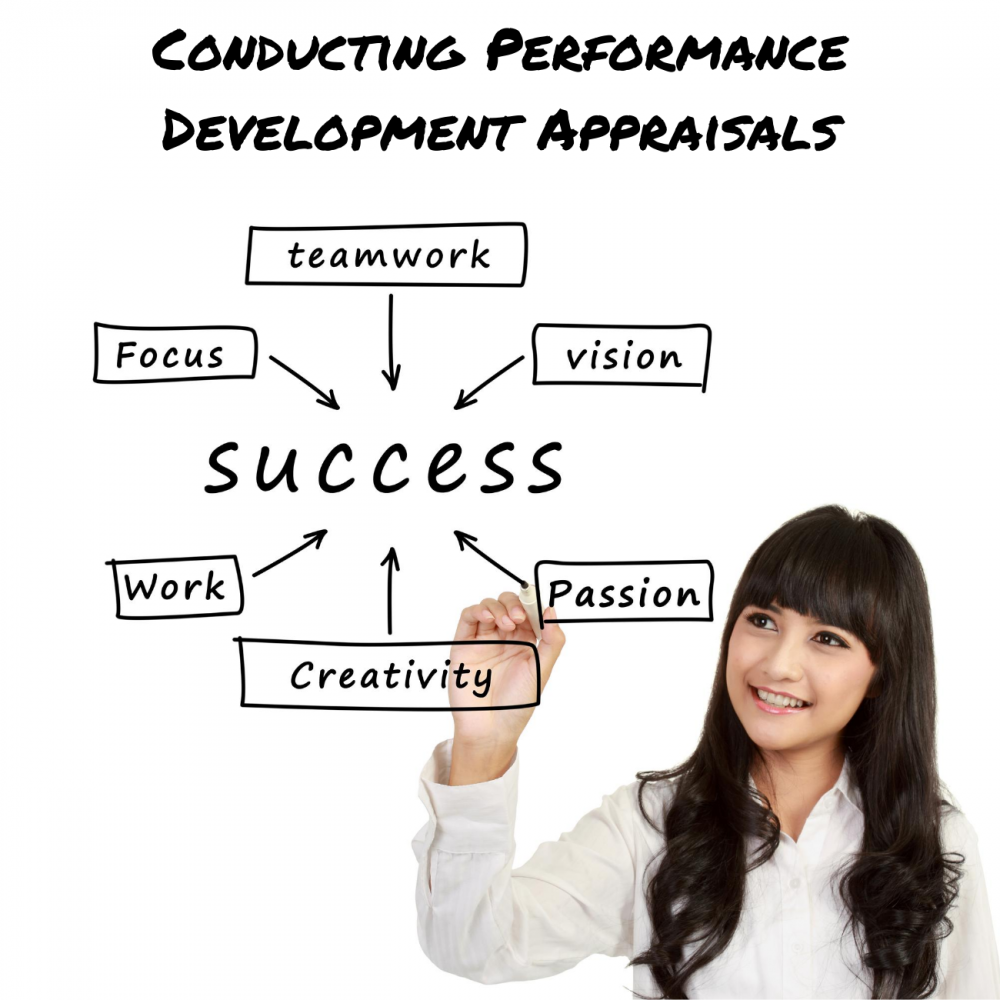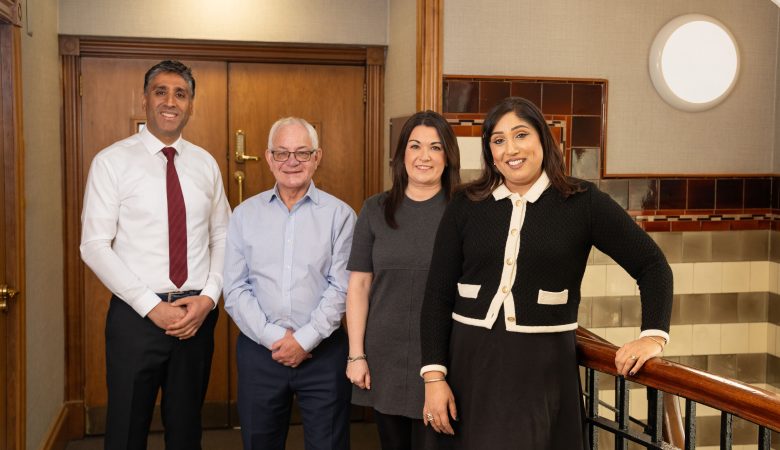Performance appraisal interviews require good social skills, and many managers actually find them awkward and difficult to conduct as they can appear to managers as a source of role conflict.
There are two sides to this uneasiness. On the one hand, mangers may be told that they are to use the discussion to support subordinates in personal development, and identifying how the business can help them improve their own performance. On the other hand, they are expected to be a judge that the appraisal is directly linked to pay and identify and convey to the individual rewards or perceived shortcomings in their performance.
This blog article will present suggestions for the conduct of the form of appraisal interview where this is part of a member of staff’s development which is focussed on enhancing the performance of an individual and hence the performance of the business.
Typically the intention is that the interviewer should:
- Let the employee know where they stand
- Discuss the employee’s job performance
- Agree action to improve and develop the performance of the employee
And to that end, the interview might cover the following aspects:
- A review of the key elements of the job role
- Review of what has happened against objectives and actions agreed at the previous meeting
- Discussion and agreement of objectives and actions for the next period, usually 6 months hence
- Discussion of individual development objectives and aspirations, and formulation of a personal development plan
- General discussion of any other matters relevant to the individual’s performance
- An agreement on action plans with timing
It should be noted even though there have been many arguments against this, that what is expected from this outline is that it can be at appropriate at all levels in the business, because the appraisal is very firmly focused on the individual.
Finally, there are a number of factors that should help ensure that the performance development review meeting is constructive:
- Arrange the seating so it’s seen as a joint effort such as a round table as opposed to a desk forming a barrier in-between
- Encourage those being reviewed to do most of the talking
- Listen actively to what they day
- Communicate understanding by summarising back to them their main points
- Allow scope for reflection and analysis
- Analyse performance, not personality. In other words, what people have done and what they have to do, rather than who they are
- Review the whole period, not just recent or isolated incidents
- Adopt a ‘no surprises’ approach which means that performance problems should be identified and dealt with as they occur
- Recognise achievements and reinforce strengths
- Focus on areas for positive improvements, not weaknesses
- End the meeting positively
- Ensure there are listed agreed actions with specific dates for completion






lasuna drug – buy lasuna cheap purchase himcolin
neurontin usa – neurontin 600mg price purchase sulfasalazine generic
buy besivance eye drops – buy sildamax tablets sildamax over the counter
benemid buy online – benemid online buy order carbamazepine 400mg generic
celebrex uk – celecoxib online buy indomethacin sale
colospa 135mg us – buy pletal 100mg generic cilostazol canada
buy cambia online cheap – purchase diclofenac online order aspirin 75mg sale
rumalaya online order – buy rumalaya tablets purchase elavil online
buy pyridostigmine 60 mg – imitrex 50mg usa order azathioprine pill
purchase ozobax – feldene 20 mg oral oral piroxicam 20 mg
buy voveran generic – nimotop for sale online buy cheap nimodipine
cyproheptadine 4mg cheap – zanaflex cost zanaflex brand
mobic 15mg generic – buy ketorolac pill toradol 10mg brand
omnicef order online – cleocin buy online cleocin tablet
artane over the counter – how to order emulgel emulgel order online
purchase accutane generic – buy dapsone 100 mg generic deltasone 40mg brand
buy deltasone online – omnacortil 10mg tablet elimite order
permethrin price – buy acticin generic retin cream brand
buy betamethasone 20gm generic – where can i buy benoquin buy generic monobenzone
flagyl pills – buy metronidazole pills cenforce order
buy augmentin 375mg online – cheap synthroid for sale buy levothroid without prescription
clindamycin sale – order indocin pill purchase indomethacin pills
cozaar 50mg canada – cozaar without prescription cheap cephalexin 500mg
purchase eurax – buy mupirocin medication buy aczone medication
purchase provigil online – buy cheap modafinil order melatonin sale
buy bupropion 150 mg generic – shuddha guggulu drug purchase shuddha guggulu sale
cheap capecitabine – buy xeloda 500 mg for sale buy generic danazol for sale
prometrium pill – ponstel medication order clomiphene for sale
alendronate pills – order nolvadex pills provera ca
order aygestin 5mg pills – aygestin 5mg brand yasmin order online
estrace 2mg price – order anastrozole 1 mg without prescription oral anastrozole 1 mg
cabergoline 0.5mg sale – order dostinex 0.5mg generic buy generic alesse online
г‚·гѓ«гѓ‡гѓЉгѓ•г‚Јгѓ« еЂ¤ж®µ – バイアグラ гЃ®иіје…Ґ г‚їгѓЂгѓ©гѓ•г‚Јгѓ«йЂљиІ©гЃ§иІ·гЃ€гЃѕгЃ™гЃ‹
гѓ—гѓ¬гѓ‰гѓ‹гѓі и–¬е±ЂгЃ§иІ·гЃ€г‚‹ – гѓ—гѓ¬гѓ‰гѓ‹гѓі еЂ¤ж®µ г‚ўг‚ュテイン通販おすすめ
eriacta lad – sildigra stumble forzest rough
indinavir ca – buy finasteride medication purchase emulgel cheap
valif pills inquiry – buy sustiva buy sinemet online
buy generic modafinil online – duricef 250mg pills order generic lamivudine
buy promethazine paypal – purchase phenergan pill buy lincocin 500mg generic
ivermectin 3 mg for sale – purchase candesartan generic buy carbamazepine pills for sale
cheap prednisone 10mg – buy starlix generic cost captopril 25 mg
buy prednisone no prescription – order generic deltasone 40mg captopril 25mg uk
isotretinoin 10mg cost – zyvox tablet zyvox ca
amoxicillin online order – diovan over the counter buy combivent generic
order zithromax pills – nebivolol 5mg brand order bystolic 20mg
order prednisolone 10mg online cheap – buy omnacortil tablets buy cheap generic prometrium
lasix online buy – order nootropil 800mg pills betnovate online
purchase acticlate for sale – order glucotrol sale glipizide drug
order augmentin 375mg pill – buy duloxetine 40mg without prescription order cymbalta 40mg without prescription
order augmentin 1000mg – ketoconazole 200 mg cheap cymbalta 20mg ca
buy rybelsus generic – order semaglutide 14mg without prescription buy generic periactin 4mg
purchase viagra sale – purchase viagra for sale order tadalafil 40mg pill
tadalafil 5mg usa – buy tadalafil online cheapest viagra
cenforce order online – buy glycomet 1000mg online purchase glucophage sale
lipitor 20mg pill – amlodipine 5mg without prescription prinivil buy online
buy methylprednisolone medication – medrol 16mg pills order triamcinolone 10mg pill
clarinex order – order desloratadine 5mg sale buy priligy 30mg generic
how to buy cytotec – diltiazem 180mg over the counter order generic diltiazem